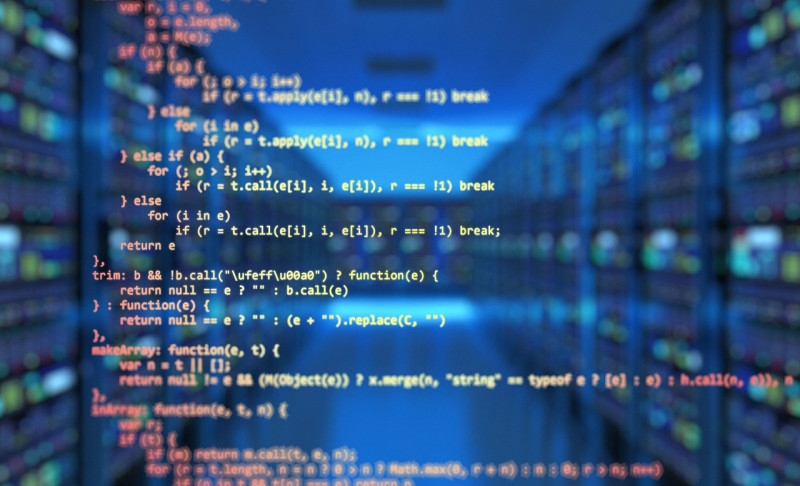
Data Science: Network Science
This course introduces concepts and tools in network science. The objective of the course is that participants acquire hands-on knowledge on how to analyze different types of networks.

This course introduces concepts and tools in network science. The objective of the course is that participants acquire hands-on knowledge on how to analyze different types of networks.
NOTE: this course is fully booked! New applicants will be placed on a waiting list.
How can networks help us understand and predict social systems? How to find important individuals and communities? How to predict unobserved connections between genes? How to learn the dependencies between interrelated entities? How can we stop disease or information spreading in networks? In this course, we provide participants with the conceptual and practical skills necessary to use network science tools to answer social, economic and biological questions.
Participants will be able to understand when a network approach is useful, understand different types of networks, understand the differences and similarities between a Complex Networks and a Social Network Analysis approach, describe network characteristics, infer edges or node attributes, and explore dynamical processes in networks.
The course has a hands-on focus, with lectures accompanied by programming practicals (in Python and R) to apply the knowledge on real networks, drawn from examples in sociology, economics and biology.
Programme:
Entry requirements:
Participants should be proficient in spoken and written English. Participants should feel comfortable programming in either Python or R (we will be using both in the course), and have a basic understanding of algebra, probability and statistics. In case participants only know either Python or R, following a short introduction course for the other language is strongly recommended.
A strong foundation for this course can be obtained through our Winter school courses Introduction to R and Introduction to Python or our Summer school courses Data Science: Programming with Python (Course code S17) and Data Science: Statistical Programming with R (Course code S24)
Teaching methods/learning formats
Each day is split into a morning and an afternoon session. In each session we first introduce a method with a focus on conceptual understanding and possible applications. This is followed by a practical in which the participants apply the method learned using real data from socioeconomic or biological settings.
During the in-class practicals, participants will have the opportunity to discuss how to apply the methods to their own data.
Participants are requested to bring their own laptop computer. Software will be available online.
This course can be taken separately, but is also part of a series of 8 courses in the Summer School Data Science specialisation taught by UU’s department of Methodology & Statistics:
Upon completing, within 5 years, 3 out of 8 courses in the Summer School Data Science specialisation (no more than one text mining course), students can obtain a certificate.
Please see here for more information about the full specialisation.
Participants with some technical background who are eager to learn about network science.
For an overview of all our summer courses offered by the Department of Methodology and Statistics please click here.
At the end of the summer school, the participants will be able to:
- Understand fundamental concepts in network science and when a network approach is advantageous;
- Describe the types of analyses available to analyze networks;
- Calculate different network descriptive statistics;
- Evaluate which centrality measures are more useful for finding the most important actors in a network;
- Describe which statistical analysis can be applied to social network data;
- Apply the relational event model to study the evolution of social interactions;
- Use probabilistic graphical models for network reconstruction;
- Evaluate different techniques of link prediction;
- Construct network models to test hypotheses about network properties and characteristics;
- Discover communities (clusters) in networks;
- Explore dynamics of contagion in networks.
Five full days. A typical course day starts at 9:00 hours and ends at 17:00 hours, with breaks for coffee and tea, lunch, and sodas.
You will receive a certificate upon course completion. Please be aware that this course does not include graded activities, and therefore we cannot provide a transcript of grades.
PhD students from the Faculty of Social and Behavioural Sciences at Utrecht University have the opportunity to attend three Winter/Summer School courses funded by the Graduate School of Social and Behavioural Sciences. Additionally, they may choose to take as many courses as they wish at their own expense from their personal budget.
Utrecht Summer School does not offer scholarships for this course.
We also offer tailor-made M&S courses and in-house M&S training. If you want to check out the possibilities, please contact us at ms.summerschool@uu.nl
The housing costs do not include a Utrecht Summer School sleeping bag. This is a separate product on the invoice. If you wish to bring your own bedding, please deselect or remove the sleeping bag from your order.